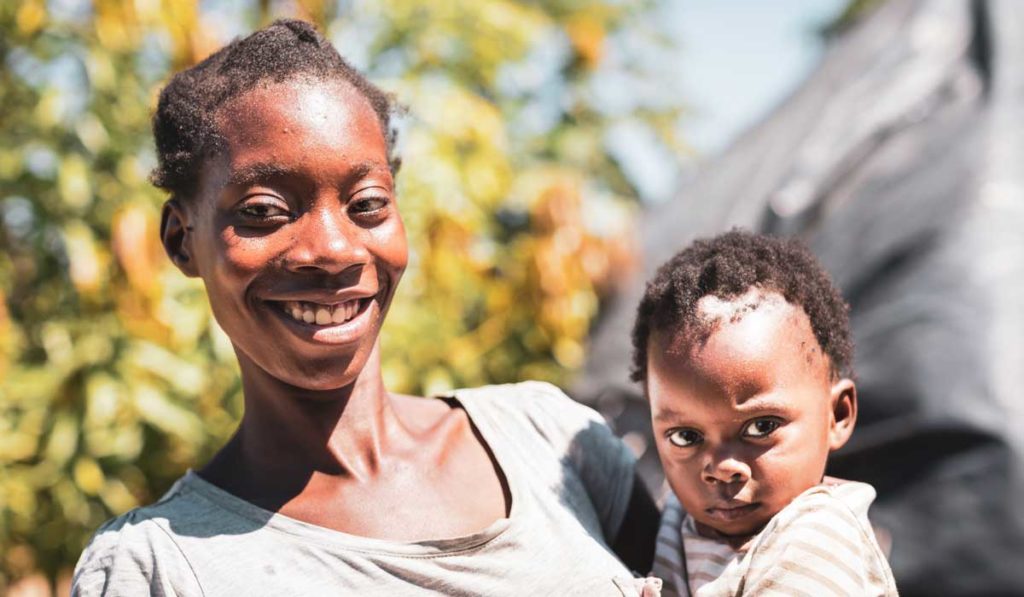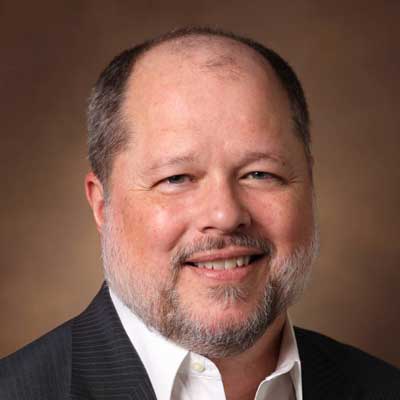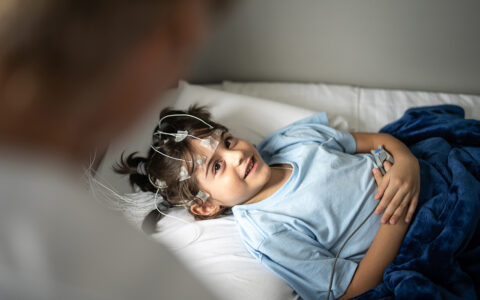The Vanderbilt Institute for Global Health (VIGH) has partnered with Aminu Kano Teaching Hospital (AKTH) in Kano, Nigeria to improve epilepsy treatment uptake. This collaborative is conducting a trial at 60 sites in three cities in northern Nigeria to determine the efficacy of shifting epilepsy care to community health workers.
The cluster randomized controlled trial is funded as part of a five-year Bridging the Childhood Epilepsy Treatment Gap in Africa (BRIDGE) grant from the National Institute of Neurological Disorders and Stroke. The project now has 150 employees, 120 of whom are community health workers who have completed the BRIDGE epilepsy training program.
“The BRIDGE clinical trial will test a system of epilepsy diagnosis and treatment that has the potential to bring care to about half of the world’s children with epilepsy.”
“The BRIDGE clinical trial will test a system of epilepsy diagnosis and treatment that has the potential to bring care to about half of the world’s children with epilepsy,” said principal investigator Edwin Trevathan, M.D., Amos Christie Chair in Global Health, VIGH director, and professor of pediatrics and neurology at Vanderbilt University Medical Center. “These children are currently without treatment, and most are without an epilepsy diagnosis and therefore unknown to the local healthcare systems.”
Local Challenges
Among the world’s children living with epilepsy, about 80 percent reside in low- and middle-income countries and most — about 95 percent — do not receive treatment. In affected areas of Africa, children with epilepsy suffer especially poor health outcomes and have high risk of serious comorbidities. Additionally, childhood epilepsy imposes hidden burdens associated with stigma, discrimination and human rights violations, says Trevathan.
The World Health Organization recommends delegating epilepsy diagnosis and treatment to community health workers (CHWs) who receive specialized training in the condition, but evidence for task-shifted epilepsy care has been lacking and large-scale programs have not been implemented.
Engaging the Community
In earlier phases of the BRIDGE project, researchers developed an epilepsy training program for CHWs, developed tools to assist CHWs in making epilepsy diagnoses, and piloted a protocol for epilepsy treatment to be used by CHWs in resource-limited environments.
BRIDGE’s training program was informed by Trevathan’s experience launching epilepsy training for nurse practitioners working in new-onset seizure clinics in the U.S. The program was then refined by VIGH and AKTH investigators and provided through a series including over 30 brief, recorded lectures. Each lecture was paired with a case-based group activity that reinforced the new material. CHWs in the training program were provided with a tablet loaded with the recorded lectures, activities and other learning materials.
An education and awareness campaign included meetings with key community leaders and stakeholders, followed by educational sessions at local schools or community centers and radio programs in Hausa language. The radio broadcasts featured AKTH physicians with special expertise in epilepsy and child neurologists, who presented basic information about epilepsy, explained the BRIDGE study, and answered questions from the audience.
Task-Shifting Epilepsy Care
The new phase of BRIDGE is comparing the outcomes of children with epilepsy diagnosed and treated by the epilepsy-trained CHWs with outcomes of children with epilepsy diagnosed and treated by physicians. The goal is to enroll 1530 to 1700 children with epilepsy, “but we’re getting pressure form community leaders to expand,” Trevathan said. The project has currently enrolled over 800 of the children in less than six months of study enrollment.
The task-shifted epilepsy care system uses an innovative epilepsy screening tool and diagnostic and management paradigms designed for environments with limited EEG access.
The primary outcome measure will be the percentage of children who are seizure-free in each group. Other measures will include percentage of seizure reduction, time to next seizure, and accuracy of diagnosis and classification. Trevathan says BRIDGE will also study the implementation of the task-shifted method and the economic impact of improving epilepsy care in northern Nigeria.
“Our mission at VIGH is to improve health in resource-limited settings,” he said. “This project has the potential to reduce the childhood epilepsy treatment gap throughout Nigeria and sub-Saharan Africa.”






